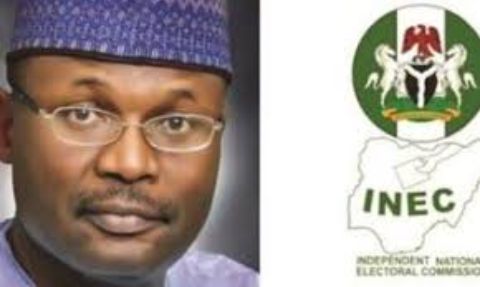Litigating election disputes is contentious, complex, and excessively technical. This accounts for the reason election tribunals and courts make efforts to resolve election disputes but often fail to address the grievances of litigants. As expected, political attention is shifting to the courts as aggrieved candidates and political parties that contested in nigeria’s 2023 general elections are approaching the courts to challenge the outcome of the polls and seeking legal remedies.
The polling unit was the arena of electoral competition a few weeks ago, but the courts have displaced the polling units as the new arena for electoral contests. As it stands, the courts will determine the final vote in all election disputes it entertains.
Election petitions describes the procedure for filing a grievance or contesting the results of an election. Election tribunals or the courts address complaints raised by plaintiffs regarding election results.
The processes, courts, and deadlines for filing documents are special because of their particular character. Technical mistakes or anomalies that wouldn’t matter in other procedures could have a catastrophic impact on election petition proceedings.
Now Let’s talk about five essential elements of Nigeria’s electoral process.
1. Not everyone has the right to contest an election result.
Election participants fall into a variety of groups, but not all of them have the legal authority to contest or contest an election’s outcome. Persons eligible to present an election petition are defined in Section 133 of the Election Act 2022.
They comprises candidates and the political party that took part in the election. A party to an election petition is a candidate whose election is under scrutiny.
Due to its function in the election administration, the Independent National Electoral Commission (INEC) will be listed as a party when a complaint is made against a permanent or ad hoc official of the INEC.
According to Nigeria’s electoral law, these people must be parties to an election petition. If these parties are left off of an election petition, bad things will happen.
The person or party that starts or files an election petition is known as the Petitioner, and the person or party that the petition is brought against is known as the Respondent.
The petitioner would often try to prove that the candidate INEC deemed the winner was not legitimately elected or that they have a right to be proclaimed the winner. The winner of the election or their party will be among the respondents. Unless the person deemed the winner is joined as a party, a tribunal or court will not consider a petition that contests an election result or a winner announced by INEC.
2. Election disputes are resolved by special tribunals and courts.
Election petitions are distinguished by the courts and tribunals that have the authority to adjudicate election issues. The following tribunals and courts with jurisdictional powers are established by the 1999 Constitution, as amended, and the Election Act 2022;
a. National Assembly and State Houses of Assembly Election Tribunals, each with the power to hear petitions regarding elections for the National Assembly and House of Assembly (Section 285(1) of the 1999 Constitution, as amended)
b. According to Section 285(2) of the 1999 Constitution, the Governorship Election Tribunal is responsible for hearing and deciding petitions for governorship elections.
c. According to Section 239(1) of the 1999 Constitution, the Court of Appeal will decide petitions challenging presidential elections.
d. The Area Council Election Tribunal, which handles complaints about elections for the Chairman and Councilor positions in the FCT. Election Act of 2022, Section 131(1)
3. Election petition tribunals must be established by statute no later than 30 days before an election.
Seven days prior to the election, the Tribunal must start taking registrations. Only if the law gives these tribunals and courts the authority may they decide an electoral dispute.
However, any action taken by these tribunals or Courts will be pointless without the legal authority. Before assuming jurisdiction to settle an election dispute, an electoral tribunal or court must meet a number of requirements.
The tribunal or court must be duly established first. Members of the panel should meet the legal requirements for qualification. Second, the case’s subject falls within the Tribunal or Court’s clearly stated purview or jurisdiction.
4. All deadlines are sacred.
The timeframe during which a party who feels wronged can file a lawsuit contesting an election result is expressly set down in the Constitution and Election Act. The statute also stipulates a time frame within which the courts must decide an election petition.
If an election petition is not submitted within the legal deadline, the Court will not consider it. Within 21 days of the election results being announced, the petitioner who wants to contest a result must file their petition. A petition becomes ineligible if it is submitted after the allotted time period has passed, and the Tribunal loses the authority to hear and decide the petition.
5. An election petition must be heard and decided by an election tribunal within 180 days after the filing date.
A petition’s validity cannot be assessed after 180 days. Within 21 days of the decision date, anyone who disagrees with the National/State Assembly or Governorship election tribunal’s ruling must file a notice of appeal in the registry of the tribunal or court.
An appeal against the decision of the Tribunal must be disposed of by the appellate courts (Court of Appeal and Supreme Court) within 60 days from the date of the delivery of judgment by the Tribunal alternativelyCourt.
Moreover, appeals from a Court of Appeal ruling to the Supreme Court must be submitted within 14 days of the judgement in question being given. A presidential election petition is decided in eight months, a petition regarding National/State Assembly elections is decided in 10 months, and a petition regarding a gubernatorial election is decided in eight months.
Hence, number of the pressing needs or crises, the constitutionally mandated deadline for hearing and deciding election cases cannot be extended.
Source: Punch











